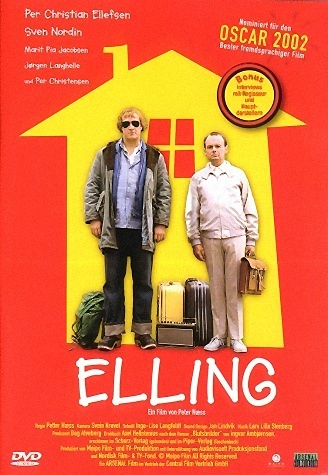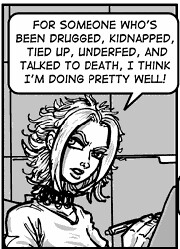By Dennis Prager
Prager interviews "a fine example of the type of thinking and behavior a homosexuality-celebrating culture -- such as that at our universities -- produces."
Except that as the interview progresses, it becomes obvious that the young woman (A.M.) arrived at college sexually uncommitted despite her self-reference to her "rigid heterosexuality."
DP: You didn't know you were sexually attracted to women until you went to university? You had lived 18 years and thought you were only sexually attracted to males.Okay, enough abstract considerations of the-thousands-of-years-of-Western-civilization dating do's and don'ts. We want details. The juicier the better. So Prager phrases the question as delicately as he can:
AM: That's true, but I also had never had a boyfriend either. I didn't date --
DP: Whether one has a boyfriend or girlfriend is very different from what one wants to have and where one's sexual fantasies lie.
AM: Yeah, that's completely true.
DP: All I'm saying about sexual choices is that society has a deep impact on sexual choices including whether it's same sex or opposite sex. So my whole position is: Thousands of years of Western civilization preferring male-female bonding leading to marriage and family is a good thing, and Anna feels that it's a bad thing. Is that totally fair? Or am I putting words in your mouth?
AM: I don't think it's necessarily preferable. I think that people should be able to make their own choices.
DP: So one is as good as the other.
AM: Yeah.
DP: Have you acted upon your new revelation of not being a rigid heterosexual?Well, that stumps A.M., even though she's Humanities B.A. material.
AM: What do you mean 'acted on'?Oh, dear. The concept of "sexual contact" with females seems unclear to A.M., but she does seem more confident about the "sexual contact" she had with her boyfriend. Just imagine how embarrassed her female "contacts" must feel about this uncertainty.
DP: Well, had sexual contact with females.
AM: I guess I have, yeah.
DP: Have you had with a male?
AM: I had. I had a boyfriend for a year.
DP: Is there any difference or are they both equally meaningful to you?
AM: Well, there is definitely a difference, but they are also both meaningful.
DP: At this point, do you hope to marry one day?A.M. may be a little hazy about the mechanics of sex, but the girl has a firm grip on the economic realities of the world, especially for a Humanities B.A.
AM: I haven't really decided on that.
DP: You don't even have that hope? You haven't decided on the hope? I asked if you hoped, not if you decided.
AM: Do I hope to marry? I don't know if I'm going to marry or not.
DP: I didn't ask if you knew; I was asking if you're hoping.
AM: I'm not sure what the difference is.
DP: I hope to win the lottery, but I don't expect to. There is a very big difference. So I'm asking if you hoped to.
AM: Well, hope would imply that that would be ideal. But I'm not going to say that getting married would be ideal. But I'm also not against marriage; I mean you get insurance benefits by getting married so I can definitely see a case where I would get married.
DP: For insurance benefits?
AM: Yeah.
DP: That's why you would marry?
AM: And tax benefits as well. It's very convenient.



No comments:
Post a Comment